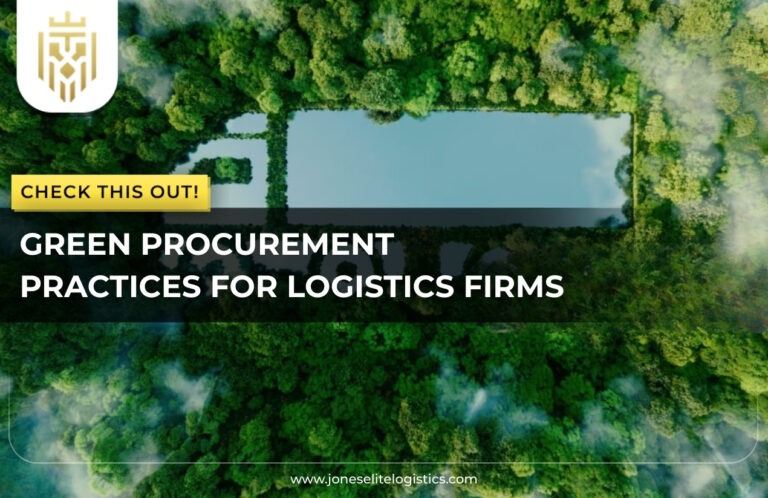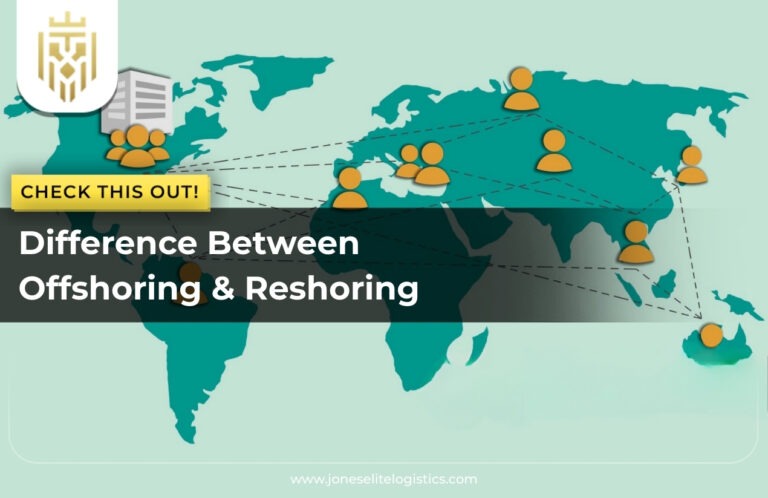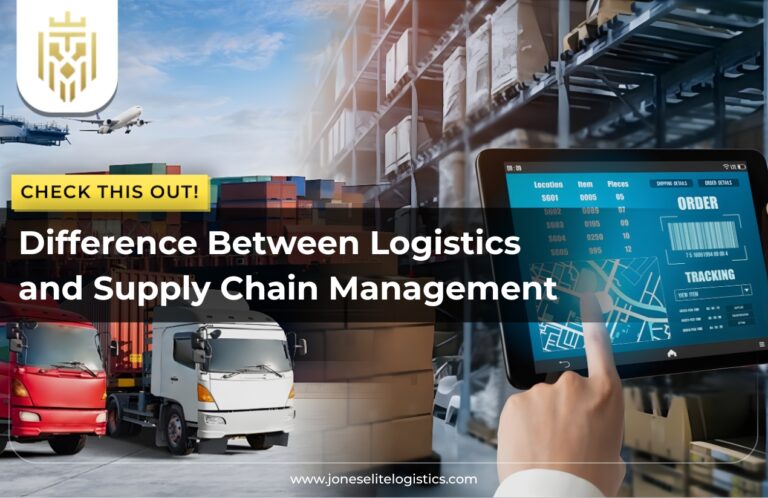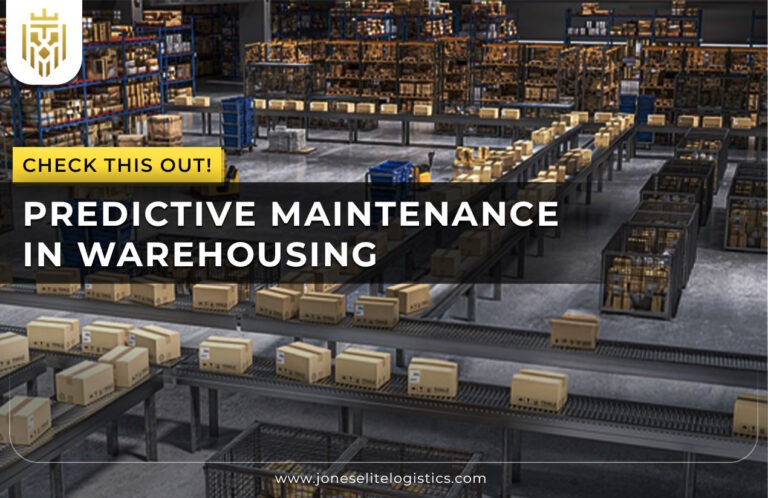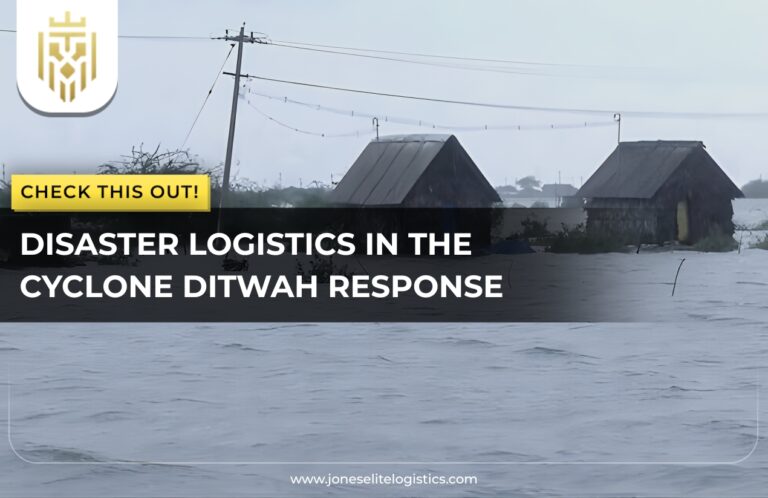What Is Outsourcing Logistics?
Outsourcing logistics means handing over logistics operations to third-party providers to manage transportation, warehousing, and distribution. This approach helps companies improve efficiency while they focus on their main business. Logistics outsourcing involves transferring logistical responsibilities to external parties.
What is the Importance of Outsourcing Logistics?
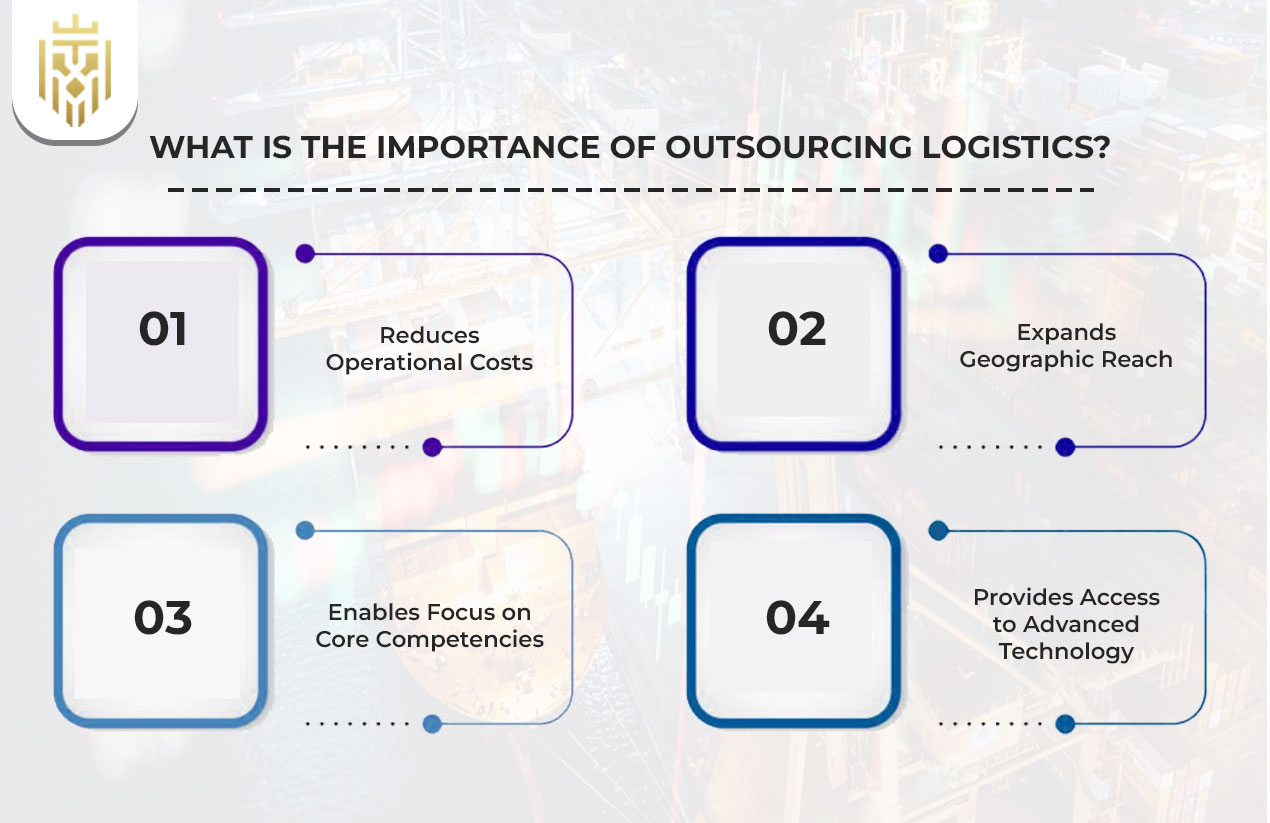
Outsourcing logistics is crucial for improving efficiency and simplifying operations. It allows companies to access expert resources, cut costs, and ensure smooth supply chain operations without taking on these tasks themselves.
Reduces Operational Costs
By outsourcing logistics, businesses can lower fixed costs related to infrastructure, labour, and technology. Using third-party providers helps companies optimise operations and reduce expenses. This flexibility boosts overall supply chain efficiency while keeping service quality high.
Expands Geographic Reach
Third-party logistics providers help companies expand into new markets quickly. With established networks, businesses gain access to global transportation and warehousing. This gives companies a strategic edge in distribution without needing heavy investments.
Enables Focus on Core Competencies
When companies outsource logistics, by understanding what logistics outsourcing is, they can redirect resources to product development and customer service. This focus helps them stay competitive by enhancing their strengths while letting experienced third-party providers handle complicated logistics.
Provides Access to Advanced Technology
Third-party providers often invest in the latest logistics technologies like automation and AI. Businesses can benefit from these innovations through logistics outsourcing arrangements, improving supply chain visibility, accuracy, and operational workflows.
Key Services Offered by Third-Party Logistics (3PL) Providers
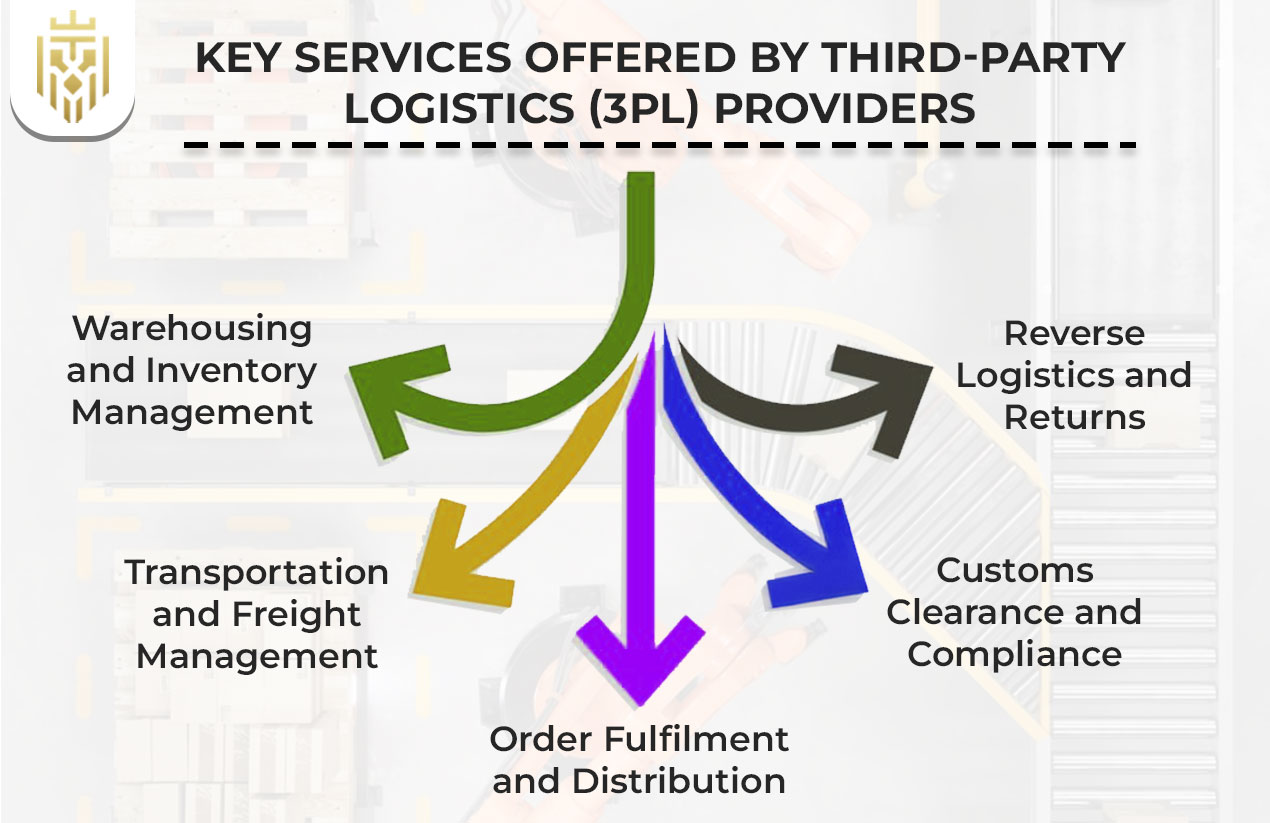
Third-party logistics companies offer a wide range of services across transportation, warehousing, inventory, distribution, and compliance management. Their expertise ensures seamless integration with clients’ operations, enhancing performance at every stage of the supply chain.
Warehousing and Inventory Management
Effective inventory management plays a key role in outsourced logistics. Providers offer solutions that ensure optimal storage, inventory control, and quick fulfilment. This approach minimises costs and boosts delivery efficiency, supporting overall supply chain performance.
Transportation and Freight Management
Third-party providers manage transportation networks to ensure efficient freight movement. They optimise routes, negotiate rates, and guarantee timely delivery. This service reduces complexity, ensuring goods arrive at their destinations safely and affordably.
Order Fulfilment and Distribution
Outsourcing order fulfilment makes operations smoother by utilising third-party distribution centres. These providers ensure accurate picking, packing, and shipping. Efficient fulfilment raises customer satisfaction and speeds up delivery commitments in competitive markets.
Customs Clearance and Compliance
Handling customs regulations can be tricky. Third-party providers take care of these processes, ensuring the accuracy of documentation and compliance with regulations. This approach minimises risks, delays, and penalties, allowing for smooth cross-border transactions and uninterrupted supply chain flows.
Reverse Logistics and Returns
Reverse logistics manages product returns, recycling, and disposal efficiently. Outsourcing logistics for returns provides cost-effective, sustainable solutions. It also improves customer satisfaction by streamlining return processes and enhancing efficiency with dedicated reverse logistics strategies.
Common Documents & Agreements in Logistics Outsourcing
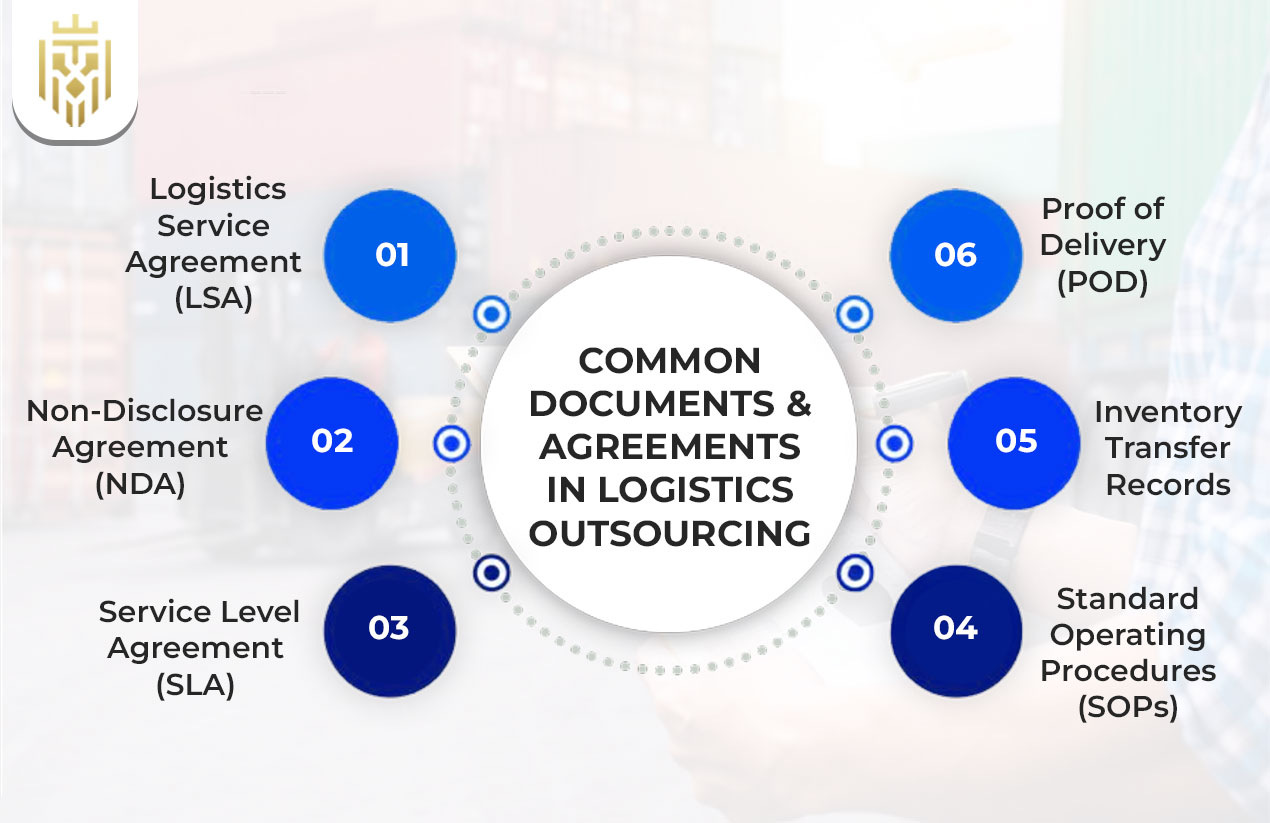
Documentation is vital in logistics outsourcing. Agreements define roles, expectations, and service standards. Proper records promote transparency, compliance, and smooth cooperation between businesses and third-party logistics providers throughout their partnership.
Logistics Service Agreement (LSA)
A Logistics Service Agreement (LSA) outlines terms between a company and its outsourced logistics provider. It details services, costs, responsibilities, and performance expectations, ensuring both parties clearly understand and build a foundation for a successful long-term partnership.
Non-Disclosure Agreement (NDA)
A Non-Disclosure Agreement (NDA) protects confidential business information during partnerships. In logistics outsourcing, this agreement ensures sensitive data related to operations, products, or customers remains secure from unauthorised access or disclosure during the collaboration.
Service Level Agreement (SLA)
Service Level Agreements (SLAs) set performance benchmarks, penalties, and expectations in third-party logistics arrangements. These agreements help ensure providers and clients agree on service quality standards, maintaining consistency and accountability throughout the logistics process.
Standard Operating Procedures (SOPs)
Standard Operating Procedures (SOPs) provide clear guidelines for managing logistics processes. These documents help maintain consistency, efficiency, and quality across different outsourced logistics operations, making sure teams follow best practices to meet service expectations.
Inventory Transfer Records
Inventory transfer records track the movement of goods between facilities. Accurate records support efficient inventory management and promote transparency across the supply chain, preventing discrepancies or losses during transfers.
Proof of Delivery (POD)
Proof of delivery confirms that shipments are received successfully. This document is crucial for verifying order completion in outsourced logistics operations, assisting invoicing, ensuring accountability, and resolving potential disputes among all parties involved.
Common Challenges & Smart Solutions
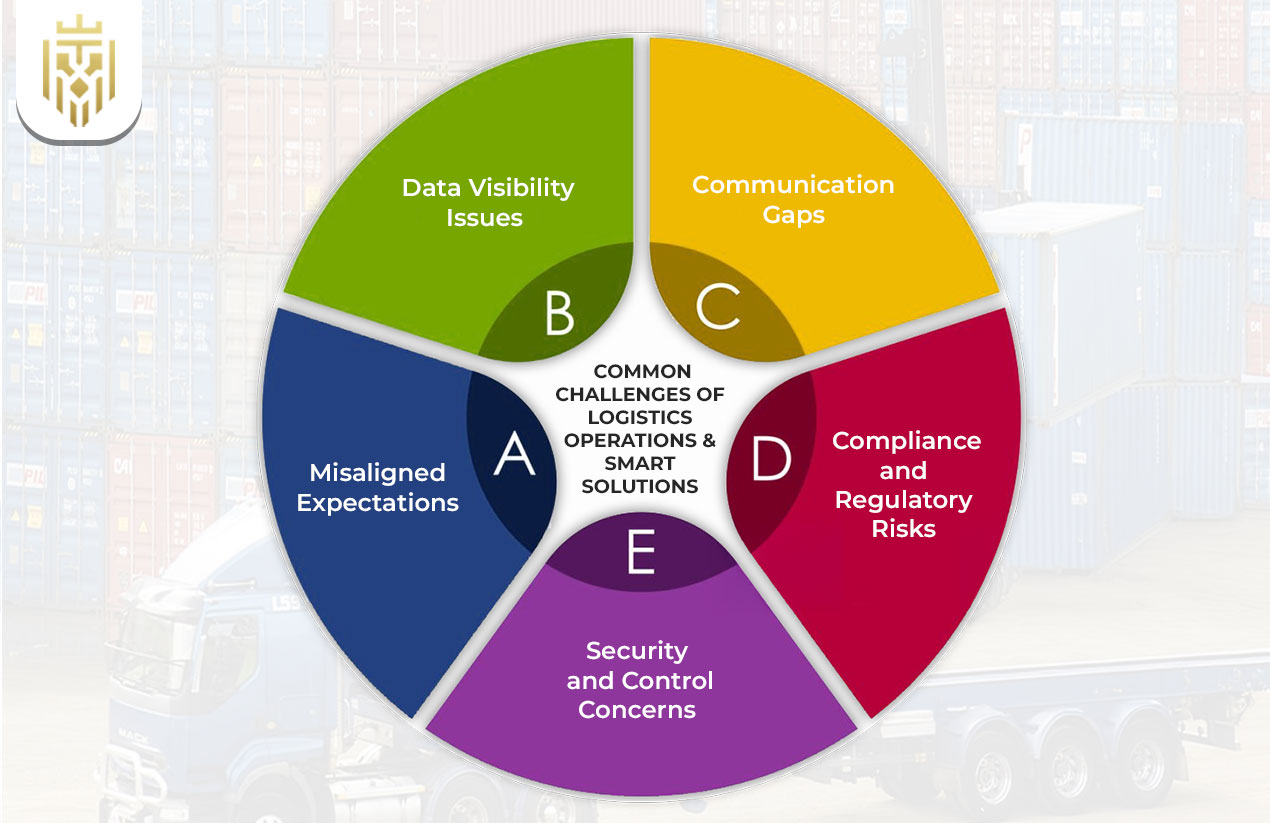
Logistics outsourcing often includes challenges like misaligned expectations and data visibility. Effective solutions involve using technology, clear communication, and selecting experienced partners to deal with these issues and improve logistics performance.
Misaligned Expectations
Clear communication and detailed contracts help prevent misunderstandings between businesses and third-party providers. Defining roles, timelines, and key performance indicators (KPIs) upfront aligns expectations, reducing conflicts and ensuring smoother logistics operations during the partnership.
Data Visibility Issues
Data transparency is critical for efficient supply chains. Integrated platforms help eliminate data silos, providing real-time visibility into all logistics activities. This improves decision-making and tracking throughout outsourced logistics operations.
Communication Gaps
Consistent, transparent communication avoids misunderstandings in logistics outsourcing. Establishing clear channels, regular updates, and collaborative tools ensures both parties stay aligned on expectations, progress, and performance metrics throughout the contract.
Compliance and Regulatory Risks
Third-party providers must comply with international trade laws and regulations. Proper due diligence, certifications, and compliance programs reduce risks, ensuring smooth and lawful logistics operations across borders in a rapidly changing regulatory environment.
Security and Control Concerns
Security measures protect physical goods and sensitive data within outsourced logistics frameworks. Strong contracts, cybersecurity protocols, and trustworthy partners minimise risks, ensuring both operational security and the integrity of supply chain processes.
Best Practices for Successful Logistics Outsourcing
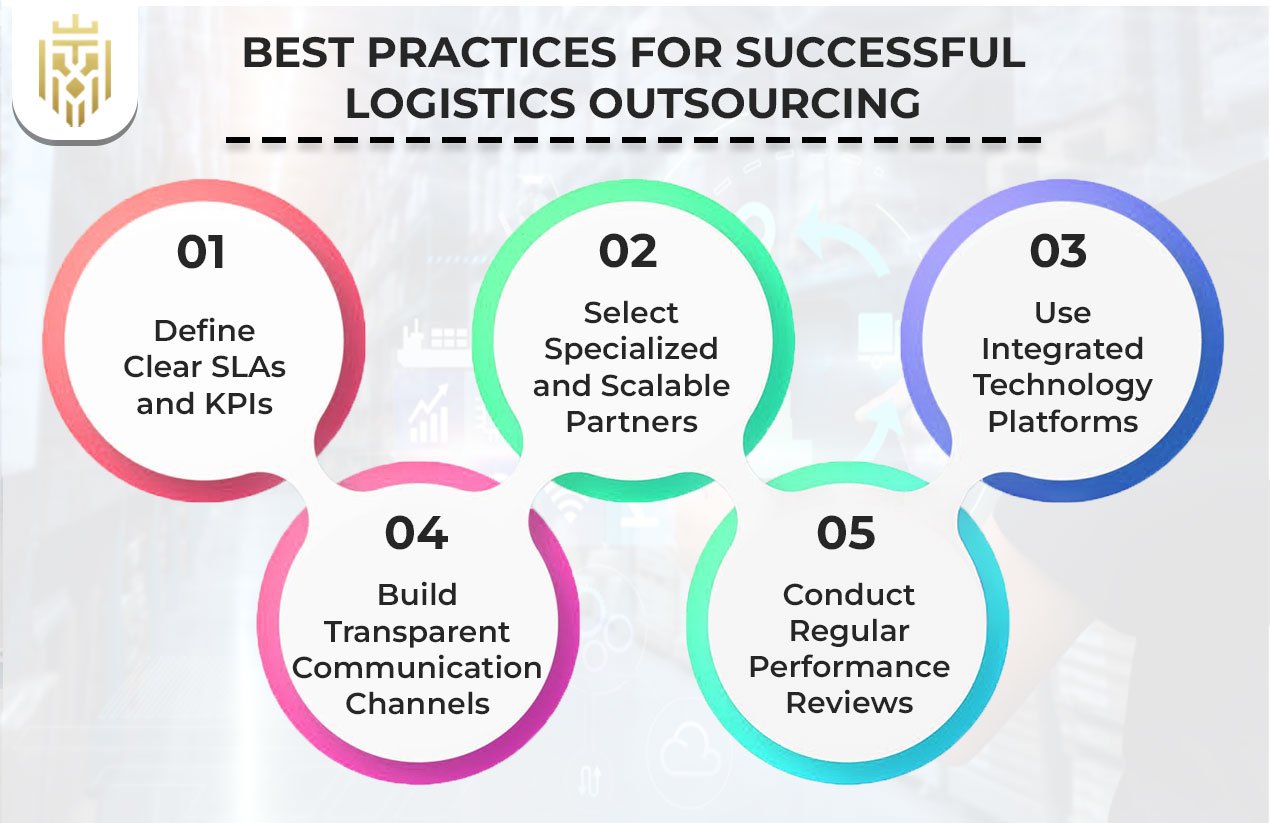
Successful logistics outsourcing requires clear strategies, reliable partners, and modern technologies. Following best practices enhances service quality, reduces risks, and delivers long-term benefits through efficient supply chain operations.
Define Clear SLAs and KPIs
Well-defined SLAs and KPIs are vital in logistics outsourcing agreements. They set performance expectations, accountability measures, and benchmarks to keep both parties aligned on deliverables, timelines, and service quality.
Select Specialised and Scalable Partners
Choosing experienced and adaptable partners ensures flexibility and growth alignment. These partners can adjust to changing needs and volumes, providing tailored solutions that boost operational efficiency and support future business expansion.
Use Integrated Technology Platforms
Advanced technology platforms enhance visibility and efficiency in logistics operations. Integration with supply chain management systems improves communication, tracking, and reporting, helping businesses and providers achieve better results together.
Build Transparent Communication Channels
Open communication fosters trust and strengthens partnerships in outsourced logistics. Regular updates, reporting methods, and feedback mechanisms ensure transparency, helping both parties proactively address issues and maintain alignment during the collaboration.
Conduct Regular Performance Reviews
Performance reviews help gauge progress, identify weaknesses, and refine logistics strategies. Regular evaluations ensure the third-party provider continues to meet expectations, enabling ongoing improvements in efficiency, service quality, and supply chain results.
Role of 3PL & 4PL Providers in Modern Supply Chains
Third-party logistics (3PL) and fourth-party logistics (4PL) providers support modern supply chain strategies through operational execution and strategic management. They optimise resources, reduce complexities, and enhance logistics performance with specialised and value-added services.
Operational Execution (3PL)
3PL providers manage daily logistics tasks, such as transportation, warehousing, and distribution. Their operational expertise ensures smooth execution, allowing businesses to concentrate on strategic goals while maintaining efficient supply chain operations.
Strategic Oversight (4PL)
4PL providers oversee the entire supply chain, coordinating multiple logistics partners for seamless integration. They offer strategic guidance, technology platforms, and performance improvement, ensuring alignment with overall business goals and long-term success.
Multi-Carrier Management
Multi-carrier strategies provide flexibility and resilience within logistics networks. By collaborating with multiple carriers, businesses can minimise risks, optimise costs, and improve delivery performance, supporting reliable logistics operations across various markets.
Value-Added Logistics Services
Value-added services like kitting, labelling, and packaging boost logistics efficiency. These services enhance customer satisfaction and operational performance, offering competitive advantages through comprehensive and tailored supply chain solutions.
FAQs
1) What is the difference between 3PL and 4PL?
3PL is involved in transportation, warehousing, container inventory, and distribution, whereas 4PL deals with the entire supply chain, including the coordination of various suppliers, provision of a strategic overview, and participation in the effective incorporation of technology.
2) How does outsourcing logistics reduce costs?
Outsourcing logistics can help save costs by avoiding the expenses of infrastructure investments, improving transportation, and decreasing labour costs. Additionally, it can utilise the expertise of third-party providers to control their supply chain and operations more efficiently, resulting in lower costs and savings.
3) What are the risks of outsourcing logistics?
Risks are lowered control, communication deficiencies, data security problems, expectation discrepancy, and non-compliance. The risks are reduced when an outsourcing logistics partnership is carefully planned, monitored, and spelt out in the contracts.
4) Can small businesses benefit from logistics outsourcing?
Yes, small businesses gain regarding cost reduction, professional services, scalability, and an optimised supply chain, and they only have to concentrate on growing their business using the resources of third-party providers.
5) What should be included in a logistics outsourcing contract?
Agreements must specify services, SLAs, KPIs, prices, schedules, compliance, security, and warehousing inventory management requirements to establish expectations and responsibility between companies and outsourced logistics analysts.
6) How do I choose the right 3PL provider?
Measure experience, technology, scalability, reputation, financial strength, scope of services, and fit to company culture. Ensure compliance with your supply chain objectives, effective communication, and established track records in outsourced logistics.
7) What is outsourcing logistics?
Outsourcing of logistics implies the involvement of third parties to handle transportation, control of the inventory in the warehouses, and distribution, as well as optimisation of the supply chain with the ability of companies to concentrate on internal sources of competence.


